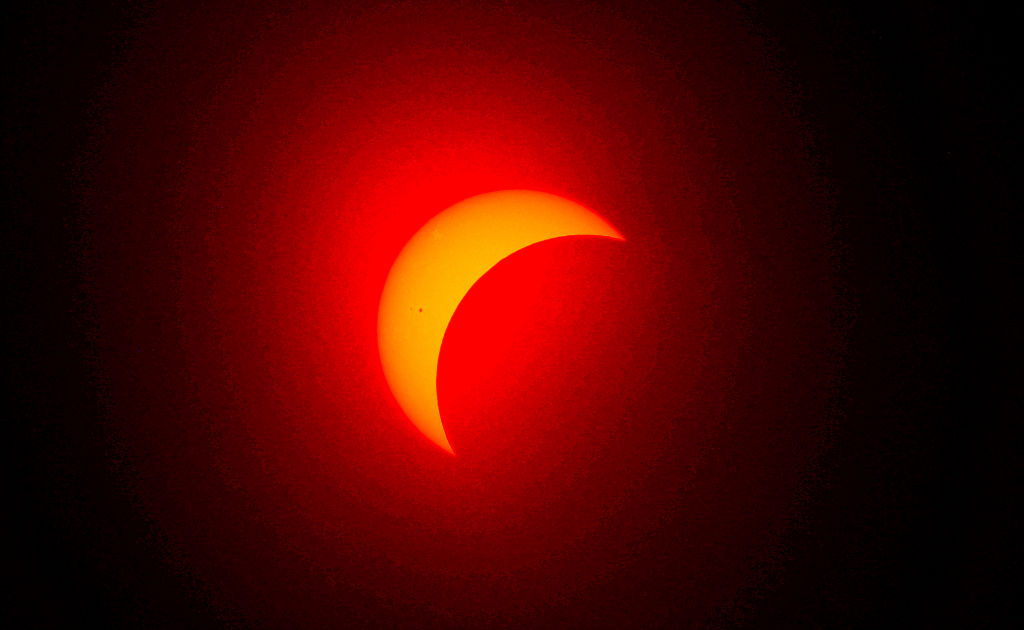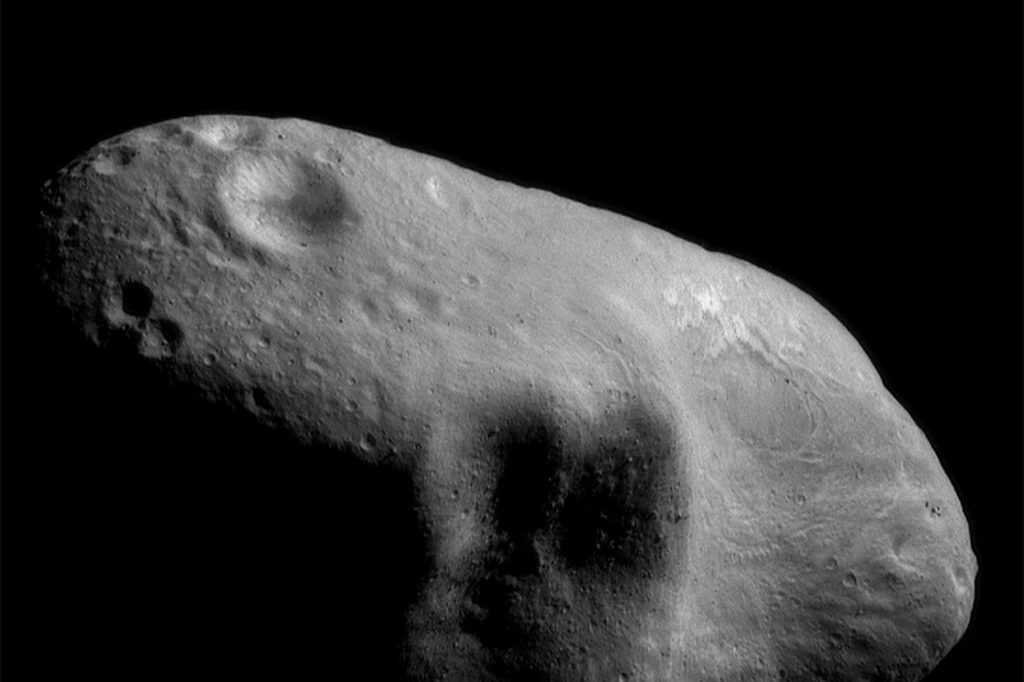The day before the April 8 eclipse — our postage stamp of ground sat smack dab in the middle of totality — we abounded in sunshine and birdsong, with nary a cloud in the sky. The day after, too, was dominated by the yellow star moseying along the ecliptic, but on the big day — we won’t be similarly situated for another 120 years — ole Sol was obscured by thick gray clouds. (Which parted, as if on mischievous cue, two hours after the celestial spectacular.)
This is why Western New Yorkers exhibit a cheerful “oh well” fatalism, and why we know that the Buffalo Bills kicker will always miss the game-ending field goal.
The hungry and hotel-hunting eclipse trackers who were predicted to overrun our rural county, leaving a spoor of tourist dollars, never showed. It seems they were savvy enough to read weather forecasts.
The blinking signs at the entrance to the New York State Thruway, which had alternated between adjuration (“Come Early, Stay Late”) and admonition (“No Stopping on Road”) were otiose. Moneymaking eclipse schemes by sharp operators in Buffalo and Rochester came a cropper; attendance was sparse and sad, like that at a Hamilton, Joe Frank & Reynolds concert at Madison Square Garden.
I stood outside the Richmond Memorial Library, holding the recently published collection of Ray Bradbury’s letters, Remembrance, and looked to the skies, fruitlessly. I never even got the chance to use my eclipse glasses. But the gathering was festive and jovial anyhow, and properly reverent as darkness descended and the temperature fell at totality. Bradbury, the most pastoral and least tech-besotted of the science-fiction masters — and one of the few who preferred human beings to machines — would have enjoyed it.
As I do before every astronomical happening, I read Walt Whitman’s rebuke to the boffinage:
When I heard the learn’d astronomer, When the proofs, the figures, were ranged in columns before me, When I was shown the charts and diagrams, to add, divide, and measure them, When I sitting heard the astronomer where he lectured with much applause in the lecture-room, How soon unaccountable I became tired and sick, Till rising and gliding out I wander’d off by myself, In the mystical moist night-air, and from time to time, Look’d up in perfect silence at the stars.
Is it possible to love a science, or any branch of knowledge, despite one’s abysmal ignorance thereof? I’d have been an incompetent astronomer. I don’t know perihelion from periodontics, but since boyhood I have loved the stars — or, more accurately, the planets. I feel kinship with Mercury and Mars in the way I do with Fargo and Concord, but I am as indifferent to Betelgeuse and Rigel as I am to Belgium and Tonga. I guess I’m a solar system chauvinist.
In 1990, upon the sixtieth anniversary of the preternaturally diligent Kansas farm boy Clyde Tombaugh’s discovery of Pluto, I heard the charming and diminutive planet pursuer speak at a nearby college. He brought no proofs or diagrams, only stories. Clyde was raising money for New Mexico State University by signing photos of his countenance against a Plutonian backdrop. I was fresh outta cash and couldn’t buy one; I later sent him a check and he mailed me two signed posters and returned my check.
That’s one reason I was so pissed off when in 2006 the learn’d astronomers of the International Astronomical Union demoted Pluto to the invidious category of “dwarf planet.”
Shortly before this outrage I interviewed the greatest living comet discoverer, David Levy, at his home in the Arizona desert. David once wrote a book on the poetry of the skies, so you know he’s soulful and therefore a Pluto partisan. He was also Tombaugh’s biographer, and he told me that poor Clyde lived his last years dreading the expulsion of his baby from the planet club.
The bastards!
After I turned off the tape recorder, David Levy asked if I wanted to see Venus, Jupiter, Saturn and the Orion Nebula through one of his telescopes — which was rather like Michael Jordan saying, “Hey, wanna shoot some hoops?” It was glorious. In Whitman’s perfect (and cloudless) silence we gazed.
This article was originally published in The Spectator’s June 2024 World edition.


























Leave a Reply